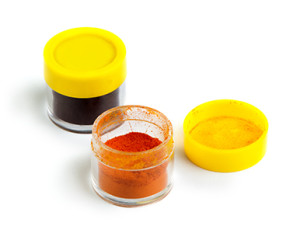Essential Oils Primer
 How to determine what essential oils are best
How to determine what essential oils are best
Many essential oils can be used in aromatherapy. There are at least 90 different essential oils and absolutes and at least 15 carrier oils commonly used in aromatherapy. With so many different oils to choose from, it is no wonder that most people have difficulty understanding what oils may be best for their specific desired affect. It is very important to study the different types of oils to determine which one will be the best one for you to use, should you decide to use aromatherapy.
Undiluted essential oils and similar products suitable for aromatherapy can usually be distinguished from other similar products since, in most cases, the undiluted oils are of a therapeutic grade. This of course is only a good standard to go on if you live in a country that regulates the industry. In the United States, the content of components of oils is standardized to the use of FCC labeling. FCC labeling refers to the food chemical codex and it is a criteria established by the FCC determines the specified amounts of a specific aroma and creating chemical must naturally occur in the oil.
This type of regulation is used to help regulate the industry so that aromatherapy retains at least some sense of standards. Not only does the FCC help to regulate aromatherapy, it also helps to determine what types of oils and essential plant material are best suited for certain therapies. In addition, this regulation determines how much of specific oil should be used for a specific purpose, eliminating the worry of using too much of any particular oil. There is no law however, that prevents a manufacturer from adding a synthetic chemical in order to meet any criteria established by the FCC for any specific oil.
The best method, however, for determining if an essential oil is going to be of much use is simply an educated nose. Many people specifically skilled in aromatherapy can often determine if a scent is synthetic or natural. This skill is something that is believed anyone can obtain, as long as he or she is willing to put in the time and effort. It is important that you should try to avoid adulterated oils and materials for your aromatherapy whenever possible.
No matter what therapy, sense, or smell you end up choosing, it is important that you remain close to your natural preference. In many cases, if you like the way that an oil smells or makes you feel, more than likely you will enjoy using it. If you do not enjoy the smell and enjoying using it as a form of therapy, it will do you no good, regardless of what that specific oil or scent is supposed to do or how it should benefit you. If you are not enjoying the scent of a specific essential oil, this is your body’s way of telling you to keep looking.

Recent Comments